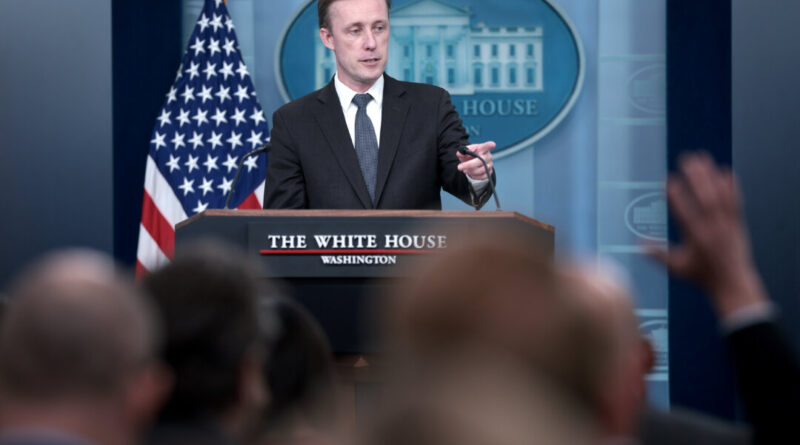US Increases Sanctions to Strangle Russian War Economy
Shortly after this announcement, the Moscow Exchange declared the suspension of transactions in dollars and euros.
The United States unveiled a new wave of sanctions against Russia ahead of the G7 summit in Italy to discuss strategies to curb Russia’s expanding war economy amid the ongoing conflict in Ukraine.
The U.S. Treasury Department announced sanctions on over 300 Russian entities and individuals on June 12. National Security Advisor Jake Sullivan stated that these measures would increase the risks for foreign financial institutions dealing with Russia’s war economy.
Sullivan also warned that foreign banks risk sanctions for engaging with any entity or individual blocked under the Russia sanctions, including designated Russian banks. Additionally, the Treasury and Department of Commerce proposed complementary restrictions targeting Russia’s access to certain U.S. software and IT services, as well as steps to more aggressively prevent shipments of U.S.-branded items.
U.S. Treasury Secretary Janet Yellen emphasized that these actions aim to increase risks for financial institutions dealing with Russia’s war economy and limit Russia’s benefits from foreign technology, equipment, software, and IT services.
Out of the newly sanctioned entities and individuals, more than two dozen are from China. These include the already-sanctioned Russian Financial Infrastructure and various third parties linked to micro-technologies, transportation, mining, and energy revenue.
Following these developments, the Moscow Exchange announced the suspension of transactions in dollars and euros.
The U.S. has imposed sanctions on over 4,000 Russian entities and individuals since the invasion of Ukraine. Despite these sanctions, Russian forces continue to persist in the conflict.
One concerning factor for Russian endurance is China’s collaboration with Russia to develop and supply dual-use technologies over the past several months.
Director of National Intelligence Avril Haines highlighted China’s role in providing dual-use components to Russia’s defense industry, which has favored Moscow in the Ukrainian conflict and bolstered Russia’s military strength.
The Department of State noted that Chinese imports are supporting Russia’s defense production cycle. Sullivan emphasized that the U.S. administration is prepared to take action against companies aiding Russia’s war efforts, not just focusing on China.
The 50th G7 Summit is scheduled in southern Italy from June 13–15, where leaders from seven major countries will convene.
Andrew Thornebrooke, Emel Akan, Reuters, and The Associated Press contributed to this report.



